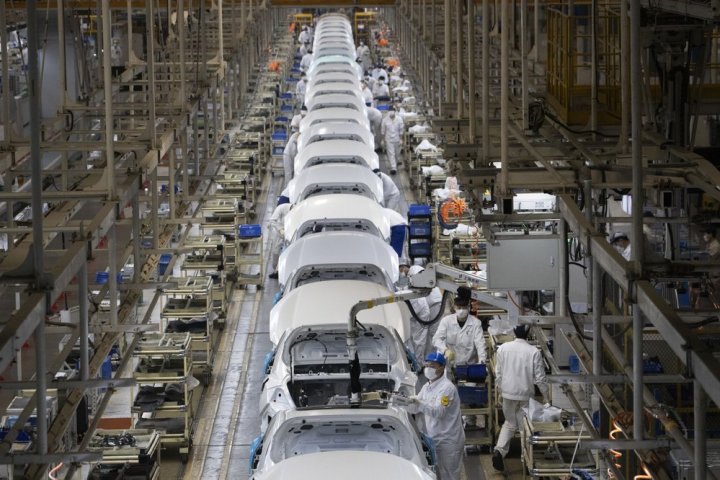[ad_1]

The United States, Japan and France are prodding their companies to rely less on China to make the world’s smartphones, drugs and other products. But even after the coronavirus derailed trade, few want to leave skilled China’s skilled workforce and efficient suppliers of raw materials to move to other countries.
Disruptions from the pandemic, on top of the U.S.-Chinese tariff war, fueled warnings that relying too much on China leaves global companies vulnerable to costly breakdowns in the event of disasters or political conflict.
Drug makers stand out as one industry that is trying to reduce reliance on Chinese suppliers by setting up sources of raw materials in the United States and Europe. But consumer electronics, medical devices and other industries are sticking with China.
“I don’t know of a single company right now that is moving ahead with any plans to move,” said Harley Seyedin, president of the American Chamber of Commerce in South China.
China’s explosive rise as the world’s low-cost factory helped to hold down consumer prices and boosted Western corporate profits. But it has fueled political tension over lost American and European blue collar jobs. Governments and industry consultants fret that dependence on China can be a threat to supply chains and possibly national security.
Chinese factories assemble most of the world’s smartphones and consumer electronics and a growing share of medical equipment, industrial robots and other high-tech goods. This country is a dominant supplier of vitamin C and ingredients for antibiotics and other medicines. The ruling Communist Party has spent two decades building ports, railways, telecom networks and other facilities that are regarded as among the world’s best.
“China still offers an unparalleled supply chain for any industry,” said Jit Lim of Alvarez & Marsal, a management consulting firm.
Philip Richardson, who manufactures loudspeakers in Panyu, near Hong Kong, said he has looked at Vietnam and other countries. But he said while their wages might be as low as 60% of China’s, the savings will be eaten up by the cost of giving up his network of Chinese suppliers.
“We gave it consideration for about a minute, and it doesn’t make sense,” said Richardson, who has worked in China for 22 years. “When you buy magnets, now you have to pay for transportation and customs duties into other countries, whereas in China we just buy the magnets and they are shipping to us.”
President Donald Trump took office in 2017 promising to “bring back our jobs.” The next year’s tariff hikes on goods from China in a fight over technology and trade prompted some exporters to shift production. But changes were small. Most went to other developing countries.
The pandemic has raised political pressure for companies to move.
The Japanese government, which sees China as a strategic rival, is offering 220 billion yen ($2 billion) to companies that move production to Japan in a virus aid package announced in April. It offers 23.5 billion yen ($220 million) for Japanese companies in China to move to other countries.
[ad_2]
Source link
Dear readers, we really need your support to keep on serving you with authoritative, truthful, and juicy stories everyday. For your support, please reach out to the editor @gavelinternational66@gmail.com

